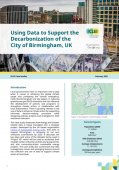
This case study from Birmingham, England, provides local policy-makers with best-practice examples of how to use data to decarbonize their cities.
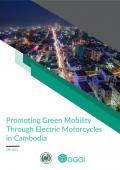
Cambodia is one of the fastest-growing economies in Southeast Asia, with an average annual GDP growth rate of 7.7% between 1995 and 2018. The overall objective of this study is to develop an investment project proposal that can facilitate the deployment of electric motorcycles (EM) in Cambodia and contribute to the reduction of GHG emissions in the transport sector
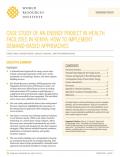
This report analyses the factors that underpinned the loan repayment and highlighted the importance of the demand-based approach when designing energy access projects.

This paper provides an overview of land use planning challenges and opportunities in the Greater Mekong Subregion and introduces tools to improve land use planning and management in the subregion.
The flow of data on freshwater health is becoming difficult to manage. This report summarizes eight case studies highlighting instances where financial technology (fintech) is being used to improve the understanding of ecological interactions with humans to better inform decision-making and plan for sustainable development and resilience.

This case study Mobike China: Synchronizing social and technological innovations towards sustainable urban transportation shows how technology can be a solution to social, environmental and economic issues.
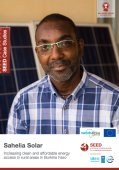
Sahelia Solar is an eco-inclusive enterprise located in Ouagadougou, the capital of Burkina Faso, and specialises in the design and supply of a range of solar energy systems.
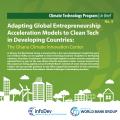
The Climate Technology Program Brief: Adapting Global Entrepreneurship Acceleration Models to Clean Tech in Developing Countries - The Ghana Climate Innovation Center is showing that a business development model that grew out of Silicon Valley can be applied to clean technology business incubation in developing countries.
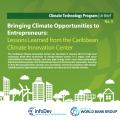
The Climate Technology Program Brief: Bringing Climate Opportunities to Entrepreneurs - Lessons Learned from the Caribbean Climate Innovation Center draws lessons from the center’s operation, focusing on how the idea generation sessions were essential to seed local companies with climate related business opportunities and introduce new ideas to local climate markets.
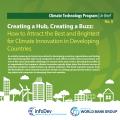
The Climate Technology Program Brief: Creating a Hub, Creating a Buzz - How to Attract the Best and Brightest for Climate Innovation in Developing Countries examines lessons from the World Bank’s seven Climate Innovation Centers on setting up buzzworthy hubs to attract top talent and companies in emerging clean tech markets.
